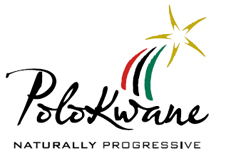Our Communities
Colourful Communities
Polokwane is cosmopolitan and exciting city where White, Indian, Coloured and Black communities are closely intertwined and live amongst each other in harmony. It is a city showing phenominal growth, the highest in South Africa, and with it the cultural diversity constantly changes.
With a population of almost 510 thousand, this remarkable metropolis has constantly shown a growth of over 4% per annum in the last few years.
Over 90% of the residents are black and they are divided into three major ethnic groups. The largest of these are the Bapedi, whose home tongue is Northern Sotho. Originally from the Bakgatla, their move to the east of the then Central Transvaal, they built a powerful empire by bringing smaller tribes into the fold, eliminating the weak and by bartering cattle to marry women from neighbouring tribes. They eventually controlled huge areas that were closely guarded and were not afraid to fight everyone who encroached on it, including the Boers, Arab traders, the Swazis and the British. With such huge numbers, it became accepted that Sotho was the language of the majority.
Considerably smaller in size, the Tsonga or Shangaan tribes people also reside in Polokwane. King Shaka of the Zulu, a proud and conquering nation, sent Soshangane, one of his warriors,to defeat and take over the area of the Tsonga people. Soshangane however, found this a peaceful and fertile place and instead of returning to Shaka’s kingdom, settled down and started a community or tribe of his own.
The traditional social structures of the Tsonga tribes are complicated. There is a small social unit within the family establishment which comprises a woman, with her own hut where she conducts such chores as cooking, and separate accommodations for her husband and children.
It is not unusual for the Tsonga man to have more than one wife, and the result is that communities are established in a tribe with the man at the head of his establishment, surrounded by the homes of his various wives and children. When sons marry, their wives and children form part of this nucleus.
The third major ethnic group is that of the Venda people. Some believe that the Venda tribe originated in the Congo. They then moved South into what is now known as Zimbabwe where some settled and a portion of them moved with a mystic chief to Thohoyandou across the great Limpopo River.
Fascinating myths and legends surround these people and intimidating stories of their witchcraft has earned them respect, and helped them overcome threats from other marauding warriors and tribes.
The white population only constitutes about 3% of the population. The majority of the white population are descendants of the early settlers in South Africa known as the Voortrekkers. Their home language is Afrikaans which is one of South Africa’s 11 official languages. This Afrikaans community makes up 2.6 percent of the residents in the city.
The balance of the white community is made up of English speaking people who are generally of British descent. Representing the city in much smaller numbers is the coloured and Indian communities who also play a major role in the development, investment and growth of Polokwane.
